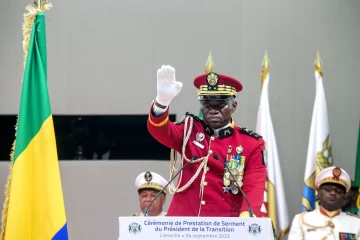The anti-gay law passed by the Ugandan president Yoseweri Museveni is just what it says on the tin: homophobic. However, embedded in illogical arguments for his signing of the bill, David Bahati – a Ugandan politician who was present at the signing of the bill – attempted to justify for the reason that it is a transgression to ‘African Values’. All of this unfolded on a recent episode of Al Jazeera’s ‘Inside Story’.
What emerged as problematic – and for two main reasons – was his adoption of the phrase ‘African Values’ to legitimise his stance and policy. As it stands, homosexuality is considered taboo across many parts of the continent however it is certainly not illegal in all African states, including Cote D’Ivoire, Benin and Niger. Across the continent, views surrounding LGBT rights cannot be said to reflect the same legal or social and cultural positions. For this reason, I failed to understand exactly what Bahati referred to as African values in relation to homosexuality.
The first issue presented itself in the way that Mr Bahati painted the entire continent as a homogenous and bounded space, standing directly in opposition to ‘western’ values. He further justified his claim of homosexuality as unafrican in claiming that ‘it is a threat to our values of a family between a man and a woman’.Secondly he further justified his position in forwarding the notion that homosexuality in Africa was and is a product of western influence, branding it a ‘new form of colonialism and social imperialism’. Indeed, as it later emerged, Bahati was shown to be historically inaccurate and ignorant.
The input of Bisi Alimi, a Nigerian gay rights activist who fled from the country due to death threats, fuelled the debate. A crucial point that was raised was the question of priority: in what capacity is homosexuality harmful, and are there not more pressing issues for the Ugandan state to tend to? Is this not a ploy to appear as though the state is in control and able to ward off threats in order to shift the spotlight from state misconduct? The anti-gay law appears to be a populist one, no doubt due to the widespread transmission of homophobic values across Uganda, resulting in public opinion becoming dominated by this discourse.
Another of his claims lay in the idea that homosexuality is a negative influence on young boys, however Bahati’s belief that being gay is a choice is again, inaccurate. Exploration into ones own sexuality is an aspect of growing up, and in a society where the free expression of sexuality is repressed and attenuated, this part of self-discovery appears misconstrued and offensive to the values of Bahati and his allies. Indeed, homosexuality is not new to Africa, nor is it a western influence.
Prior to the colonial encounter, same-sex activity and third sex groups existed across the continent, and were criminalised as a result of the homophobia embedded in Victorian beliefs. Among numerous and often untold examples, the 20th century anthropologist Evans-Pritchard observed the existence of ‘boy wives’ among the Zande of Zaire, while the existence of transgender and third-sex individuals in South Asia were not regarded as threatening to social values.
Ultimately, the notion that homosexuality is ‘unafrican’ is invalid: the principle reason being that human sexuality is inherent and transcends regional and cultural norms. One last point I would like to make is the importance of recognising that this very notion of Africa as bounded, isolated and diametrically opposed to other societies, especially western ones, is in itself a construct of colonial thought and reasoning. Cultural norms exist, but the extent to which they dictate individual cases should be questioned. African values also exist and are based in ideals of unity, integrity and respect – but these are also ideals shared in many other parts of the world – and it is for this main reason that I believe Mr Bahati’s misuse of the term to be an affront.


